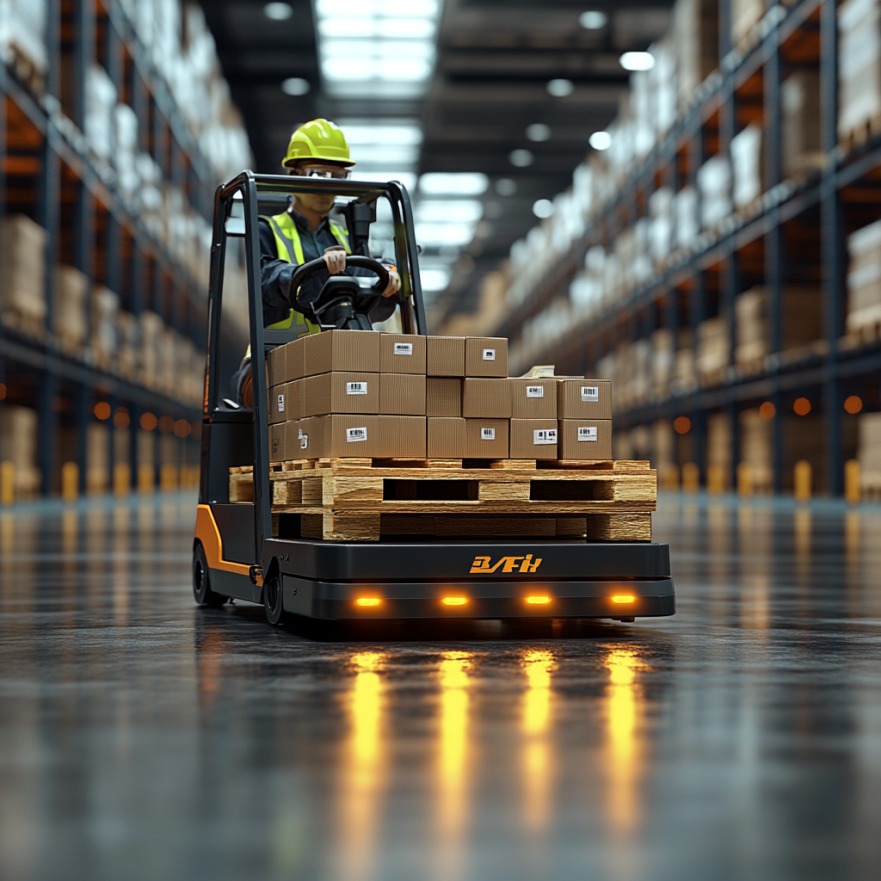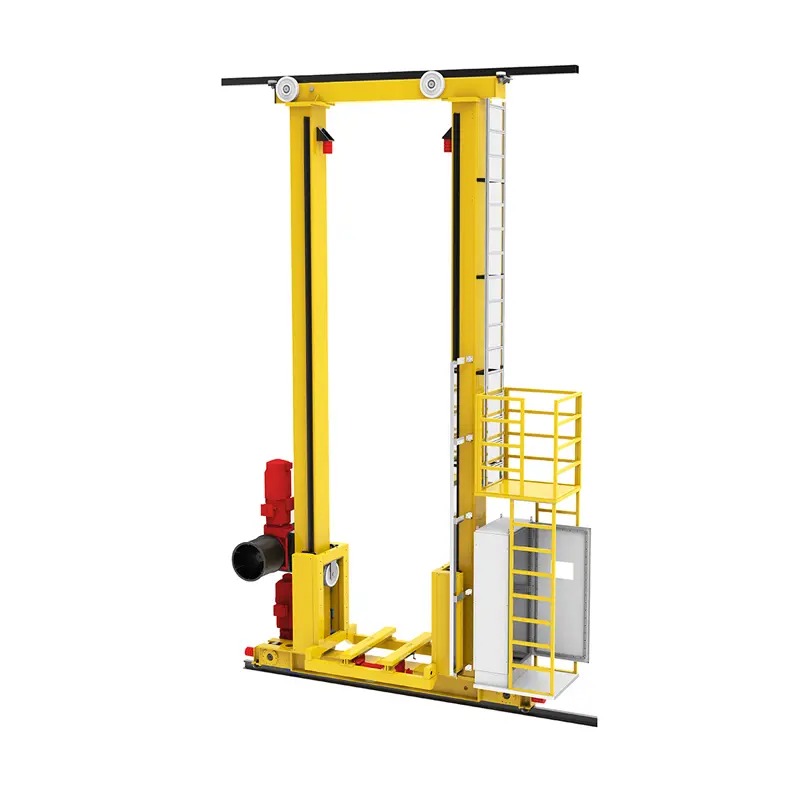Create Time: 05 ,22 ,2025
Efficient material handling equipment is the backbone of any warehouse operation. Whether you're moving pallets short distances or storing them in high-density racks, choosing the right tool—pallet jacks, stackers, or stacker cranes—can make all the difference in productivity and cost savings.
This guide breaks down the key differences between pallet jacks and stackers, including automated stacker cranes for pallets, helping you decide which solution fits your warehouse needs.
A pallet jack (or pallet truck) is a simple, cost-effective tool designed to lift and transport pallets over short distances.
Manual pallet jacks require physical effort to operate.
Electric pallet jacks use battery-powered motors for easier handling.
Load capacity: Typically 2,200 – 5,500 lbs.
Lift height: Up to 8 inches (just enough to move pallets).

✔ Loading/unloading trucks
✔ Short-distance horizontal transport (e.g., from docks to storage)
✔ Retail stores & small warehouses
Pros:
Affordable (low upfront cost)
Easy to operate (minimal training required)
Highly maneuverable in tight spaces
Cons:
Limited lift height (cannot stack pallets)
Manual effort required (for non-electric models)
A stacker is designed for lifting and stacking pallets at medium heights. The two main types are:
Walk-behind stackers – Operator guides the machine on foot.
Rider stackers – Operator rides the equipment like a forklift.

A pallet stacker crane is a fully automated system used in Automated Storage & Retrieval Systems (AS/RS). These warehouse stacker cranes retrieve and store pallets in high-density racks without manual intervention.
Operate in narrow aisles, maximizing storage space.
Controlled by Warehouse Management Systems (WMS).
Ideal for high-volume, high-density pallet storage.
✔ Multi-level pallet storage
✔ Cold storage & food distribution centers
✔ Large warehouses with AS/RS integration
| Feature | Pallet Jack | Stacker | Stacker Crane |
|---|---|---|---|
| Lift Height | Low (≤ 8") | Medium (up to 20') | High (multi-level) |
| Automation | Manual/Semi-Auto | Semi-Auto | Fully Automated |
| Best For | Horizontal moves | Low-level stacking | High-density storage |
| Cost | $ (Low) | $$ (Medium) | $$$ (High) |
✔ Small warehouses with basic transport needs.
✔ Retail & grocery stores moving pallets short distances.
✔ Operations with limited vertical storage requirements.
✔ Low-to-mid level stacking (up to 20 feet).
✔ Warehouses needing occasional vertical storage.
✔ High-volume distribution centers.
✔ Automated warehouses with AS/RS.
✔ Cold storage facilities requiring unmanned operations.
Pallet Jacks: Basic OSHA training required.
Stackers: Operator certification recommended.
Stacker Cranes: Advanced training & system integration needed.
AI-powered stacker cranes for optimized storage.
IoT sensors for predictive maintenance.
Hybrid systems combining manual & automated handling.
Q: Can a stacker crane replace forklifts?
A: In high-density warehouses, yes—but forklifts are still better for versatile lifting.
Q: What's the maximum weight for a pallet jack?
A: Typically 5,500 lbs, but heavy-duty models handle more.
Q: Are stacker cranes worth the investment?
A: For large-scale operations, absolutely—they cut labor costs & maximize space.
Choosing between a pallet jack, stacker, or stacker crane depends on your needs:
Pallet Jacks = Best for basic horizontal movement.
Stackers = Ideal for low-to-medium stacking.
Stacker Cranes = Perfect for automated, high-density storage.
Need expert advice? Contact our material handling specialists for a consultation today!